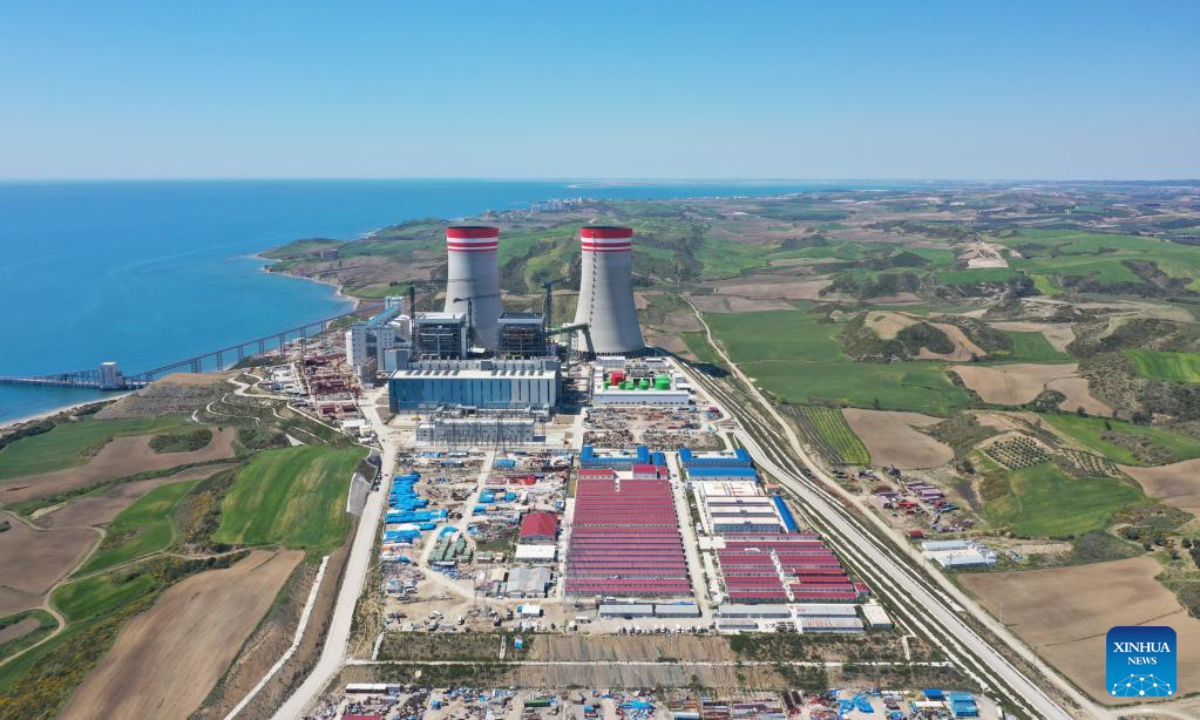
Aerial photo taken on April 14, 2022 shows a view of the Emba Hunutlu power plant in Sugozu village in south Turkey's Adana Province. Photo:Xinhua
Under the Belt and Road Initiative (BRI), China and Turkey have carried out a series of practical cooperation projects in areas such as infrastructure, energy, transportation, digital technology and finance, which have generated tangible benefits for both countries and their people. Energy has been a key sector, a Chinese diplomat said on Wednesday.
The two countries have huge potential for cooperation on clean energy, environmental protection and related areas, Qian Xinyi, counsellor for political and press affairs of the Chinese Embassy in Turkey, said at an online open-day event held by the State Power Investment Corporation (SPIC).
SPIC is one of the five major power generation groups in China and the largest solar power generation enterprise in the world, with its businesses covering 46 countries and regions, including Turkey.
Aiming to build a world-class clean energy enterprise with global competitiveness, SPIC has stepped up efforts to promote green and low-carbon development. As of October 2022, the company's total installed power generation capacity exceeded 200 million kilowatts, of which clean energy accounted for 62.56 percent, Li Baoqing, a director of SPIC, said at the online event.
The company also released a report on sustainable development by Chinese companies in Turkey at the event, introducing typical cases of Chinese firms pursuing sustainable development and fulfilling social responsibility in the nation.
For instance, the 10.835-megawatt Adiyaman photovoltaic project, which is SPIC's first solar energy investment in Turkey, was built on top of a once-barren mountain. It has now turned the barren mountain into green land, bringing new momentum to the region, according to the report.
Another major project is the Hunutlu Thermal Power Plant, the largest China-backed coal-fired power plant in Turkey. The Hunutlu power plant, which received direct investment of $1.7 billion from Chinese companies, is a flagship project linking the China-proposed BRI with Turkey's "Middle Corridor" vision.
The power plant is fully operational now, offering a lot of job opportunities to local residents while providing 4 to 6 percent of Turkey's electricity, according to Qian.
Apart from power supply, the project is environmentally friendly. Flue gas desulfurization and SCR denitration equipment has been used, keeping carbon emissions at the power plant below EU emission standards.
The company has also taken many measures to help protect the local environment, including providing protection for the endangered green sea turtle to lay eggs in nearby waters.
Both the two countries have announced goals to reduce emissions. Holding a common mission of pursuing green and zero-carbon development, there is great potential for the two countries to join hands in the green energy area, said guests at the online event.
Global Times
